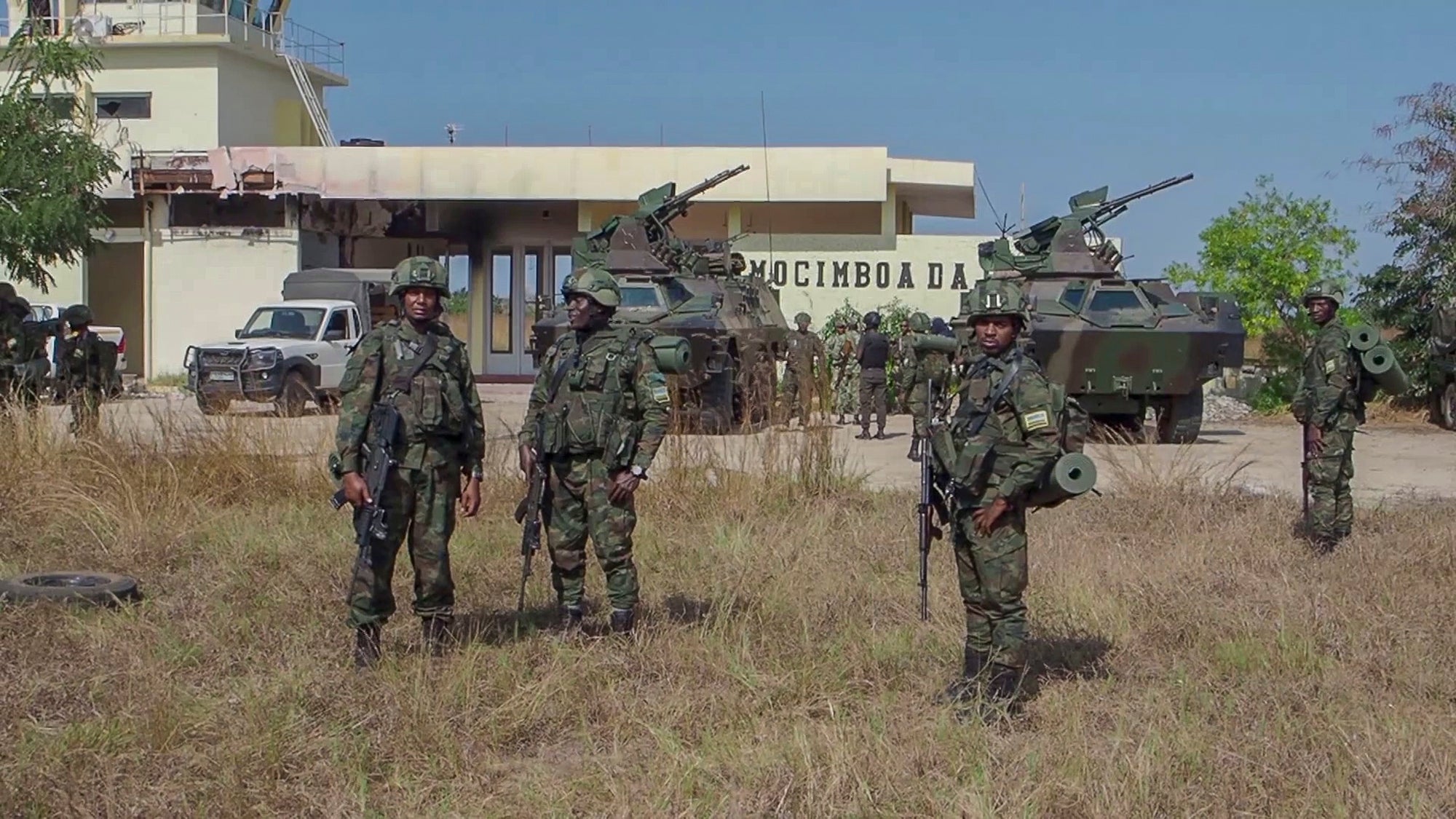Rwandan, Mozambican forces chase rebels after retaking port
Fresh from recapturing a strategic northern Mozambican port held by Islamic extremist rebels for a year, Rwandan and Mozambican troops say they are pursuing the insurgents into surrounding areas

Your support helps us to tell the story
From reproductive rights to climate change to Big Tech, The Independent is on the ground when the story is developing. Whether it's investigating the financials of Elon Musk's pro-Trump PAC or producing our latest documentary, 'The A Word', which shines a light on the American women fighting for reproductive rights, we know how important it is to parse out the facts from the messaging.
At such a critical moment in US history, we need reporters on the ground. Your donation allows us to keep sending journalists to speak to both sides of the story.
The Independent is trusted by Americans across the entire political spectrum. And unlike many other quality news outlets, we choose not to lock Americans out of our reporting and analysis with paywalls. We believe quality journalism should be available to everyone, paid for by those who can afford it.
Your support makes all the difference.Fresh from recapturing a strategic northern Mozambican port held by Islamic extremist rebels for a year, Rwandan and Mozambican troops say they are pursuing the insurgents into the surrounding areas.
After retaking Mocimboa da Praia earlier this week, leaders of the joint force of Mozambican military and 1,000 Rwandan army troops say they will be chasing the insurgents and seeking to establish peace and stability in the northern Cabo Delgado province.
“Our actions talk more than words. As you can see, today we are free. We have Mocimboa da Praia freed from terrorists but this is the first stage,” Mozambican army commander Christorao Artur Chume told The Associated Press.
"The next stage is to move forward, to go to their big stronghold to defeat them so that this part of Cabo Delgado can be free from terrorists,” he said Monday.
The commander of the Rwandan Defence Force mission in Mozambique, Innocent Kabandana, said the retaking of Mocimboa da Praia is the first step in restoring stability to the province.
“We believe that this is a process. It is a gradual thing, so fighting is the initial part, destroying those strongholds is the initial part,” Kabandana said.
“But the stabilization phase is also another phase. We believe we want to play a part as we progress toward (establishing) the whole peaceful area of Cabo Delgado,” he said. It's not certain how long the Rwandan troops would be in Mozambique, he said.
The retaking of Mocimboa da Praia is the most notable success of the Rwandan troops since they arrived last month and rapidly helped Mozambique’s armed forces achieve victories against the insurgents. Before the deployment of the Rwandan forces, Mozambique’s military and police had not succeeded in stemming the rebels’ offensives.
In their four-year insurgency the extremist rebels, loosely allied to the Islamic State group, extended their influence over a large area and created a humanitarian emergency in Cabo Delgado province. More than 3,000 Mozambicans have been killed and 800,000 people displaced by the rebellion. Nearly 1 million people need urgent food aid as a result of the conflict, according to the U.N. World Food Program.
Earlier this year the insurgents forced the French energy firm Total to pull out of its $20 billion liquified natural gas project near Palma, further north on the Indian Ocean coastline. Mozambican media report that the financing for the Rwandan troops’ mission in Mozambique is coming from France.
The joint Mozambican and Rwandan force is visibly in control of Mocimboa da Praia, patrolling public and private buildings, the port, the airport, the hospital, markets and restaurants. Mocimboa da Praia port is key to transporting supplies to other parts of Cabo Delgado province, including the liquified natural gas project.
Local residents said they hope that daily life will return to normal in Mocimboa da Praia.
"We have peace now. We were instructed to leave the forests as soldiers were advancing on the ground and in airplanes. We then gathered together and left the forest,” said Joao da Silva, a father of four and resident of the nearby Mute village.
“Ever since the soldiers came here, we can afford a good night’s sleep.” said da Silva. "We are very thankful to them. Before they came, we were being chased around like goats. Children would suffer in the forest. Nowadays we are back to civilization. We are thankful.”